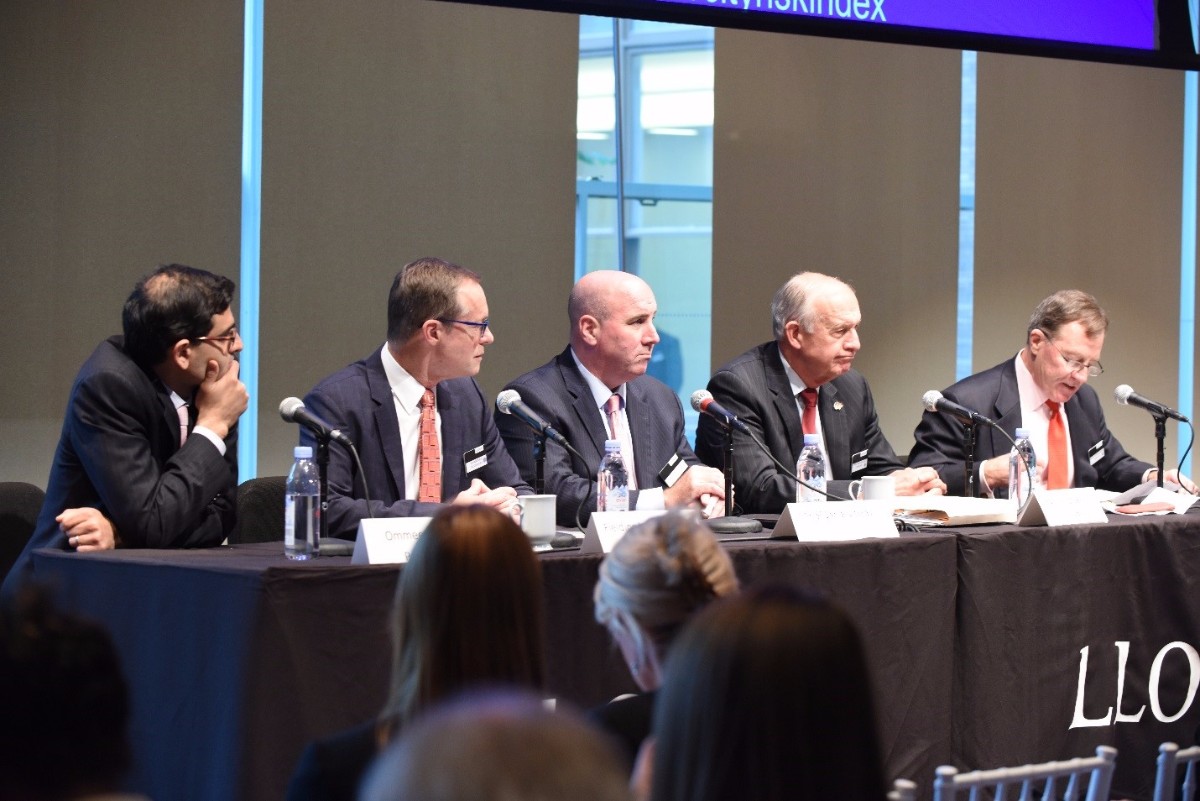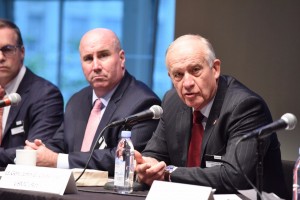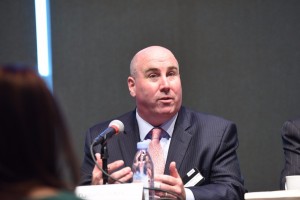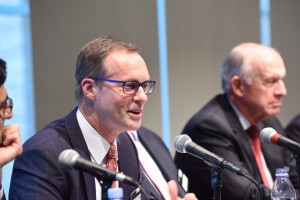 Mr. Sathe, Mr. Norton, Chief Linskey, LtGen. Castellaw, and BGen. Cheney
Mr. Sathe, Mr. Norton, Chief Linskey, LtGen. Castellaw, and BGen. Cheney
Cities in the Crosshairs – Panel 2: Resilient Collaboration
Panelists
Lt. Gen. John “Glad” Castellaw, ASP Board member
Chief Daniel Linskey, former Superintendent-in-Chief of Boston Police
Fid Norton, Deputy Chief Enterprise Risk Officer of XL Catlin
Ommeed Sathe, Vice President of Impact Investments for Prudential
Moderator : Brig. Gen. Steve Cheney, ASP CEO
On October 13th, 2016, the American Security Project, in partnership with Lloyd’s, hosted Cities in the Crosshairs: The Case for Investing in Resilience. The event brought together leading business leaders, policymakers, and regulators to discuss how innovative partnerships can and should build greater resilience at the city level.
The second panel, “Resilient Collaboration”, was moderated by ASP CEO, BGen. Stephen Cheney, and featured a broad range of experts from the military, public sector and private sector discussing their perspectives on building resilience at the city, state, national, and international levels.
Lt. Gen. John Castellaw, an ASP Board member and retired Marine, started off the discussion with an overview of the man-made and natural risks the military faces and the importance of building resilience to these risks. Gen. Castellaw highlighted the necessity of collaboration both across branches of service within the U.S. and internationally to combat these risks.
Chief Daniel Linskey, former Superintendent-in-Chief of Boston Police, cited his experience in managing the aftermath of the Boston marathon bombing to provide a city-level look at disaster preparedness; both man-made and natural. Chief Linskey explained how his experience with this event reinforced the importance of training and thinking “outside of the box” in order to build resilience before such events take place.
Fid Norton, Deputy Chief Enterprise Risk Officer of XL Catlin, provided the insurance perspective for the panel, discussing the “insurance gap”, the 75% of losses from natural disasters that is not covered by insurance. Mr. Norton suggested that collaboration is the key to closing this “insurance gap” and by not closing the gap, it is a missed opportunity for the insurance field.
Ommeed Sathe, Vice President of Impact Investments for Prudential, discussed Prudential’s work on “impact investing” and the larger insurance industry’s responsibility to not only evaluate risks but also prevent them. Mr. Sathe explained that the industry saw firsthand the consequences of not investing in resilience with Hurricane Katrina. The changing and growing risk landscape of the future requires investment at all levels today.
See our event pictures (all rights reserved):
- Cheif Daniel Linskey (left) and Gen. John Castellaw (right)
- Chief Daniel Linskey, former Superintendent-in-Chief of Boston Police
- Fid Nortorn (left) and Gen. John Castellaw (right)
- Ommeed Sathe (left) and Fid Norton (right)
For more event recaps, click here:
Panel 3: A Resilient City – New York’s Perspective









